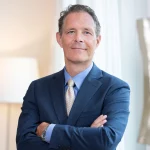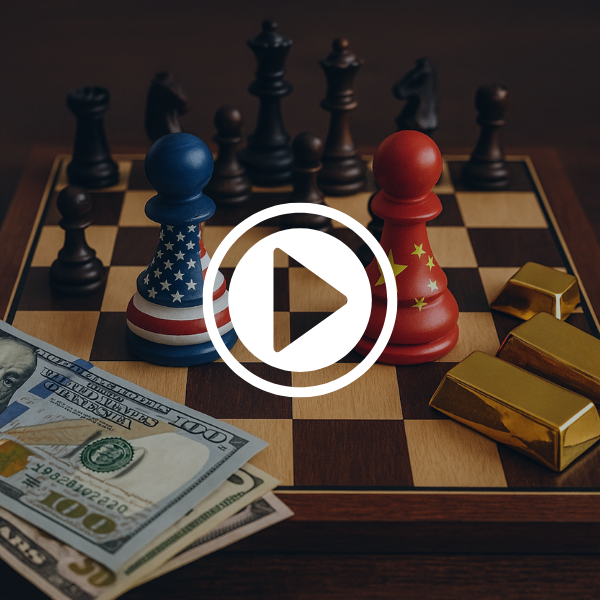Golden Question: Is Democracy Dying?
Is democracy dying?
Pride Cometh Before the Fall
Many years ago, the American political scientist, Francis Fukuyama, prematurely declared the victory both of liberal democracy and free-market capitalism.

In a recent article, I argued that Fukuyama was dead wrong.
Sadly, I’ve also written that capitalism died long ago, replaced instead by a fact-supported yet disturbing version of neo-feudalism masquerading as progress—progress, at least, for a 1-10% minority.
This, of course, can easily be dismissed as sensationalism.
So, let’s stick to the facts and allow each of us to draw our own conclusions.
Political Opportunists vs. Democratic Math
The evidence of the waning voice of the people in a world led by an unloved minority is about the numbers, not political bias.
Let’s dig in.
In France, for example, Macron’s “center party” received just 1/5 of the national vote in a first-round snap election which came on the heels of even more embarrassing European Parliament elections in early June.
In Germany, which is led by a patchwork coalition of three parties, that same coalition polled just 30% of the June vote.
And yet the openly and mathematically unloved remain in control?
In the US, more than 70% of Americans, regardless of party, admitted that Biden was mentally unfit to lead the nation.
In Japan, the approval rating for its Prime Minister (Kishida) stands at 13%, with 9/10th of his own party members voting against him.
Meanwhile, in Canada, Justin Trudeau remains in a similar position of “coalition survival” despite a national approval rating of 28%.
And yet, again, the openly and mathematically unloved remain in control?
“Democracy” and “freedom,” the buzz words which once meant something to the framers (however flawed) of the US Constitution or the signers of the European Maastricht Treaty, seem to have been hijacked by leaders who openly ignore the will of the people.
Derivatively, this means “democracy and freedom” are mere words rather than current practices.
This, by the way, has nothing to do with my own political biases (I have them); but as one who tracks economies rather than uninspiring and mediocre politicos, I prefer to deal in objective and undeniable percentages.
And the above percentages, regardless of political ideology, speak for themselves: What the people want is not what (or who) the people are getting.
Democracy is Messy
Churchill famously said that “democracy is the worst form of government, except for the others.”
This is because democracy doesn’t always give you the result you wanted, but it sure beats autocracy…
And Alexis de Tocqueville, no fan of revolutionary violence, roamed the pre-Civil War US and wondered out loud about the brave experiment of US individualism, asking if rule by the masses could outperform the rule of a monarch:
“I do not know if the people of the United States would vote for superior men if they ran for office, but there can be no doubt that such men do not run.”
In short, democracy may be messy, and the vote of the majority may not jibe with one’s own individual preferences, but if we are to have democracy, we must be willing to accept the majority will of the people.
This democratic acceptance of even unwanted results is the price which both happy and unhappy voters are willing to pay at each election cycle to maintain the very democratic ideal which all citizens, left or right, claim to respect.
But what happens if those seeking power are unwilling to accept unwanted results? What if the “leaders” and their “coalitions” cling to power despite an open lack of majority support?
Consent of the People?
I ask you: Is that democracy? Do the people today consent to their “elected”?
Do the people want to risk nuclear war over Ukraine? Does that make them anti-democratic?
Do the fathers and mothers of France, Germany, the US or even Kyiv want to send their children to wars chosen by those in power who will themselves never risk the trenches? Does that make the people anti-patriotic?
Do the people want more illegal immigration than their economies or diluted cultures can handle? Does that make the people universally racist?
Do the people want to see their currencies debased so that their leaders can spend mouse-clicked trillions which their nations don’t otherwise possess in order to buy votes for their next election (while ignoring the financial and hence social destruction of the next generation)? Does that make the people anti-capitalist?
Do the people wish to be led by those with less intellectual, historical, economic or legal expertise than the average college Freshman? Does that make the people elitist?
Do the people need the paid-for opinion of celebrities, many of whom have zero expertise in anything, to influence their votes? Does that make the people unimaginative? Populists?
Do the people deserve a fourth estate which actually questions, rather than caters to, a corporate-owned and politically-controlled “free press”? Does that make the people anti-free speech?
Do the people of the United States deserve to have their presidential candidates chosen by the citizens rather than selected by the deep-pocketed insiders of the RNC or DNC? Does that make the people un-American?
Do those same Americans deserve representation in the House and Senate who represent their voices (and States) rather than the donations of their K-Street lobbyists—both domestic and foreign? Does that make the people anti-democratic?
Do citizens, marked by the greatest wealth inequality in history (due to central bank policies which have sent inflation into a stock market rather than liquidity into Main Street), have a right to ask why a central bank has become the fourth branch of our government? Or does that make the people a security threat?
These are not left questions. These are not right questions. These are not liberal questions. These are not conservative questions.
Instead, they are democratic questions.
And by the irony of their rhetorical tone, such questions suggest that I am less worried about who wins or loses in a real democracy than I am about whether we even have a democracy at all.
Know Your Boundaries?
Of course, one could (and will) say: “bla, bla, bla, bla.”
After all, why should macro economists like myself enter the swamp of political critique?
Shouldn’t we market types just stick to whatever we know (or don’t know) about credit, equities, currencies, yield-spreads, commodity cycles and financial indicators?
Fair point.
But here’s the rub: Politics, like it or not, influence markets.
In fact, markets are an extension of politics (from Tariffs to interest rate policies), and thus one has to at least consider politics as objectively as humanly possible.
War & Economics
But far more intimidating and concerning, is that war itself (as von Clausewitz reminds) is also an extension of politics, and the world, led by leaders who statistically do not represent the majority, is now closer to war than any of us can deny.
Ray Dalio, for example, gives the US a 50/50 chance for civil war; Elon Musk says more war is inevitable. Right or wrong, the very fact that such concerns are openly rising should have us all wondering out loud.
History & Economics
More importantly, and more aligned with the market forces which us market types DO address, is the objective signs and risks of: 1) credit cycles openly pointing to a recession now and ahead; 2) deflation and inflation cycles that crush the working poor (and the first to be drafted); 3) sovereign debt bombs which always, and without historical exception, lead to currency debasement and centralized (rather than democratic) control.
Trust the Experts?
Others, comfortably numb in their consensus-think largely illiquid/unrealized paper wealth, will want to dismiss such historical, mathematical and current warning signs as the stuff of “gloom and doom” pushers of pet rock assets.
This is largely because the current system has been very good for that select few at the expense of the ignored many.
The TBTF banks, and the central banks who control them, from Basel to DC, have their backs, right? Trust the experts, right?
But the open failure of those banks (from the GFC of 2008, the banking disaster of 2023 [SVB, First Republic or Credit Suisse] to the current and looming CRE poisons already evident at New York Community Bank et al.) is quietly omitted from public and political discourse.
Thomas Hoenig, one of the very few honest FOMC voices, has openly admitted that we are just one banking crisis away from QE to the moon (and hence the destruction of our paper money).
He reminds us that even the TBTF banks are sitting on over $600B in unrealized UST losses and trillions more in bad (mostly CRE) loans.
He further admits that the banks’ calming declaration of 14% “risk-weighted capital” is “nonsense,” and that the real measure of bank health is the capital-to-total-assets ratio, which sits today at a terminally ill 7%.
In short, and as warned with objective case studies rather than just gold bias, we’d be wiser to not trust the experts…
More Lies of Omission
What is equally omitted from current public and political discourse is that from the very day the US left the gold-standard in 1971, US debt to GDP ratios have gone from 38% then to 122% today.
And in that same period, US government debt has skyrocketed from $246B to over $35T.
Those simple facts and figures alone are appalling, and their ripple-effect implications on our society and currencies are not matters of debate, but of historical and mathematical inevitability.
Even Hemmingway, no market pundit, said it better than anyone else when assessing the interplay of politics, currency and war:

War, currency debasement and inflation (driven by un-democratic political opportunists) are not even forecasts anymore, they are current and growing realities.
Gold & The World Speak for Themselves
And these politically ignored realities are not just suggesting a repricing (downward) of the USD and a re-valuation (upward) of gold; instead, these realities are screaming of it.
Again, this is not fable but fact, and the facts, rather than “gold-bug biases”, speak entirely for themselves:
- Eastern central banks have been net-stacking gold and net-dumping USTs since 2014. Why? Because they know gold will be playing the key role as a reserve asset now and in the years to come. Nations and central banks trust this metal far more than paper IOUs backed by increasingly debased (and weaponized) paper money.
- More than 45 countries are net-settling their trades outside of the USD. China is buying oil from Russia and net-settling in gold.
- Major oil nations, including Saudi Arabia and the UAE, have joined the BRICS+ alliance and are slowly but surely stacking gold while selling oil outside the petrodollar system.
- Over the last year and a half, more than 30 nations, from Germany to Ghana or France to Saudi Arabia, have been repatriating their gold out of the London and New York exchanges while the financial media stays silent. Why the repatriation? Because nations no longer trust those uber-levered exchanges or jurisdictions to hold their most prized asset.
- The IMF has been telegraphing CBDC ever since the pretext of the COVID Crisis gave them the opportunity to do so—and this new digital direction, love or hate it, openly speaks of a gold coverage.
- The BIS, which is the mother of the world’s central banks, made gold the only other Tier-One asset besides the UST in 2023. Why? Because even this otherwise nefarious bank sees that gold is replacing the UST as a reserve asset, for the simple reason, again, that gold, unlike dollars, can’t be debased (or confiscated) by broke(n) sovereigns like the USA.
In sum, your leaders, the majority of whom openly lack majority support, won’t tell you this. But as one of the “people,” I will set the facts before you.
About Matthew Piepenburg
Matthew Piepenburg
Partner
VON GREYERZ AG
Zurich, Switzerland
Phone: +41 44 213 62 45
VON GREYERZ AG global client base strategically stores an important part of their wealth in Switzerland in physical gold and silver outside the banking system. VON GREYERZ is pleased to deliver a unique and exceptional service to our highly esteemed wealth preservation clientele in over 90 countries.
VONGREYERZ.gold
Contact Us
Articles may be republished if full credits are given with a link to VONGREYERZ.GOLD




